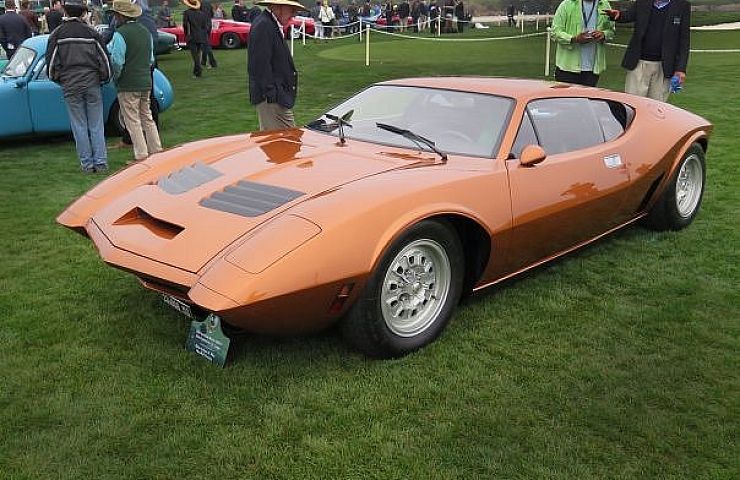Background:
The Mio 269 mobile navigation system is a hand held personal GPS receiver (£370) from Mio Technology. This is essentially the same basic system as the very successful, popular and cheaper Mio 268 (£234); both have a fully integrated antenna; touch screen; good functionality and excellent build quality in a beautiful, flat package.
However, the 269 has a few additional extras such as over 8 million miles of road mapping data (sourced from Tele Atlas stored on an internal hard disk with 500 MB of usable capacity instead of being stored on a secure digital card) and a remote control too, an a 1 year manufacturer’s warranty!
As I am partially sighted, walking to a new destination has always been a nightmare for me. Now I use my Mio to walk to and from new places then get back home, and it has broadened my horizons fantastically.
The mapping software is very easy to use and understand. It gives accurate directions to any locations I want and can recalculate a new path if I missed a turn, I really don’t know how I did without this little box.
I also like the ability to search for specific points of interest and calculate a route based on the category type rather than the address. I’ve found things on my back doorstep I would never have known were there!
It really will fit in your pocket; unlike most of the TomTom based systems that require a Blue tooth device for your Pocket PC; This self-contained unit has nothing sticking out and nothing that can scratch you, catch you or easily break off. No installation is required – all software and maps are already on the 2.5Gb hard drive, and it is all set to go from the moment you power it up (you must charge it for 8 hours before the first use).
Whether you are walking to an address in a new area, driving to a new destination in the UK, or cycling through Europe, this is the answer to all your needs and it will run for about 4.5 hours on a single charge.
The Mio 269 includes an MP3 player so you can listen to your favourite music on it too and there’s 500 MBs of storage on the hard drive, that’s about 8 hours of music.
Specifications:
Resolution: 320 x 240, 8-bit (256 colours);
Processor: Intel PXA255 300Mhz;
Iinternal memory: ROM 32Mb; RAM 64Mb;
Internal storage: 2.5MB, user accessible 700 MB, map data pre-installed;
GPS Chipset: Sirfstar II with Xtrack;
Battery: 1350mAH;
Size: 138mm x 72-78mm x 26mm;
Weight: 232g;
Box Contents:
The Mio 269;
Remote Control;
Head phones;
UK/Europe power supply;
ActiveSync software (web based); and
User guide CD (PDF format);
Backup maps CD;
ActiveSync USB transfer cable;
Car charger;
External car antenna;
Car mounting kit;
Bike mounting kit;
System Use:
Switch on the unit and work through the initial system set-up for date & time, then wait a few second for the unit to initialise itself and load up the operating system and that’s it! The operating system has four application icons on the main screen:
Navigation: The GPS navigation software “MioMap CE”, this includes visual (2-D and 3-D) map and voice directions to destination, and more than 1 million points of interest, including airports, automated teller machine (ATM) locations, Museums stations and restaurants; this is the first version of the software so it should get better, see below.
Music: A very cute MP3 player interface, with some interesting preset graphic equaliser settings.
Contacts: A basic address book type application, your contacts can be transferred across and viewed on the Mio 269, but it is not a synchronisation tool as the transfer process is one-way only: Desktop to Mio 269 not very useful since you can’t upload to your computer, and to update you have to download the entire address book again.
Settings: Allows customisation of the system settings and shows the battery status.
Plus Points:
1) Pedestrian option routes are programmed through pedestrian-only areas and in both directions on the one-way streets.
2) A complete solution, switch it on and it is ready to use immediately from the box;
3) A user-friendly interface so entering data is straightforward and the database is very comprehensive;
4) Mapping is detailed and it’s based on the popular Navigon Mobile Navigator 4;
5) No need for swapping SD cards to view new maps – it’s all on the hard-disk
6) Extremely sensitive GPS receiver which acquires and reacquires a signal incredibly quickly;
7) 3.5-inch full colour touchscreen, and built in 1-inch speaker are both very clear;
8) Copy and store your contacts from Outlook.
9) Build quality is exemplary;
10) Physical in addition to the onscreen controls for important functions.
11) A “home” button automatically starts navigation to your home address;
12) Clear intuitive, well structured interface and controls, see exceptions below.
13) Additional secure digital storage ability (not supplied);
14) Allows non-route based navigation by listing the routeing information in narrative form.
15) Extensive Points of Interest to help find your nearest garage, hotel, restaurant.
16) About 4.5 hours use on a single charge, depending on LCD brightness, sound volume settings used on the system, as well as satellite reception condition.
Minus Points:
Most of the following are very small shortcomings included more for the Mio Technology software development team as a matter of record than for the customer so please don’t read too much into this. The Mio 268 and 269 are both exemplary systems with just small, easly fixed, software issues.
These are likely only a natural consequence of the Microsoft business Model, ie dumping an otherwise excellent product onto the market prematurely with a view to gaining a monopoly over the competition.
1a) The screen can appear cluttered if left at the default settings due to the amount of available information, note that this can be easily fixed by changing a few settings.
1b) It does not come with a screen protector kit to help prevent it being covered in smears, mucky finger prints and screeches; I would expect at least one for £400, note you can buy these from Mio for £8.50.
2) The voice navigation instructions are excellent but are not customizable, I would like to be able to choose the type of and frequency of instructions; for example I wish it could tell me which side of the road the next turn is on in advance so I can find a safe place to cross over, away from the next junction when it informs you.
3a) The protective case that comes in the box is perfectly good for storage but I would like it to have been a PDA style case which protects the unit while in use.
3b) The device is NOT water proof or resistant to water (ie the secure digital port is on the top), note you can buy a hermetically sealed waterproof case from Mio for £17.00.
4) The remote control can be a little pointless given that you are never more than two feet from the Mio 269; Note that it interferes with my TV and stereo.
5) You can not programme the navigation application from your computer, you can only download music and contacts. The ability to have a desktop interface to the Mios navigation application would be very useful.
6a) There is no way to change the navigation application “skin”, there is an option in the settings but no alternatives and the default is the worst possible combination of orange outlining; grey background “wallpaper”; the buttons are grey with white text and the “selected” item is black, I Hate it, Okay it may well look cool but it is not practicable, you just can not see anything it the sunlight!
6b) You can not change the map colours, the selected route to follow is green. The day map view uses 4 colours (roads are white, land is pink, main roads are white outline filled orange, minor roads a filled white and water or woodland is blue/green).
The night map replaces most colours with black and white (all the land is black and all the text is filled white. I really would like to customise the map colouring.
7a) The GPS receiver consumes the most power, and you can manually disable it to conserve the battery, however, you can not set it to turn itself off after say 3 minutes of no movement and it will not go in to a low power mode. Note that there is a power save feature – it puts the whole system into standby after x minutes however this is not the same and leaves the receiver on,
7b) If you disable the receiver and do not manually enable it again and then start a navigation, it will just never acquire a GPS fix and will say that ‘a signal is not available now’.
Until you remember to enable the receiver, it will just sit there waiting with a message that implies it will start the navigation when it finds a signal (which will never happen), note that in most other displays (ie at the map view) you can see if the receiver is enabled or not but not when it is waiting for a navigation to start. (You must cancel, enable the receiver then restart the navigation process.)
7c) If the receiver is disabled and you attempt to look at the GPS current position data, it reports that no receiver is attached to the device, ie it implies that there is some physical problem when this is not true, this is just sloppy programming but still irritating because all it need say is that you have disabled the receiver and ask if you want to enable it now, which is what happens if you try to look at the battery status. This is illogical, see 8c.
8a) The rechargeable lithium ion battery is sealed, I would have liked it if I could replace the battery, ie it will die over time and for £400 it is unfair to have to buy a new system just because of this and if necessary it would be nice to use standard battiries.
8b) The battery power sensor is very hamfisted, capacity is denoted by the icon being green for 100% and red for unter 30%. This means you need to know that if the 30% battery capacity warning is displayed after 120 minutes
then 60 minutes capacity is left for navigation.
8c) The Li-ion battery type used does not suffer from a memory effect disadvantage, but the thing does lie and the navigation application keeps interrupting and forcing you to press an OK button because it thinks there the battery is at 30% of the remaining capacity when in fact this is not true. Very irritating, I would like such advisory notes to display for say 8 seconds or until you press Okay.
8c) The battery status icon is very small, but does give a basic indication of the current charge however clicking on this icon does not display more complete information about the battery, as you would expect, ie a percentage of charge or estimated time remaining – it only allows you to disable or enable the GPS receiver! This is illogical, see 7c.
8d) You can change the screen brightness but there is no way to control the back light, it is a very cute blue light but it uses a lot of power if you use the physical controls alot.
9a) It does not allow 7-digit UK postcode entry and the initial route calculation can be slow (although, recalculation is very quick indeed).
9b) It will quickly re-calculate a route if you choose not to follow the initial instructions however it does not show you any alternative, you must assume that it has picked the”best” one, (note that you can program a multiple point route or “block” roads within a given radius of a location and it will route around them but that is not the point, some times you want or need to start going in a given direction and this that would be helpful).
9c) You can view the map at any pre-saved destination, select one from the map or enter the address, but there is no “demo” mode, so if you want to see or just plan a route, ie use it like an Atlas to save power, you can not, you must wait up to 5 minutes for a cold GPS fix before it will calculate a route, you can then turn off the GPS receiver after that but why can it not just let you select the starting point in addition to the destination?
9d) Some times the map will “jump”around trying to centre your current position in relation to the direction of the destination, this only happens if you are not moving, very close to the destination.
9e) Planing by shortest or quickest route is only allowed the car option.
10a) Points of interest are read only but I would like to add my own, ie they are pre-programmed and they do not include open spaces such as parks and woodlands, I like to walk through parks.
10b) For people who have lots of contacts and need to visit them frequently, the ability to navigate to their addresses via the contacts manager would be good except that the contacts manager is not linked to the navigation application, all you can do is use this facility to remind you of the address but you must then reenter it in the navigation application!
10c) You can copy your outlook address book from your computer onto Mio ,you can even create new, edit existing or delete contacts on the Mio but you can not upload the changes to your PC because the data transfer is one way – there is no synchronisation capability like a PDA
11) It has 64 MB of RAM but still seems underpowered; 64Mb of RAM should be more than necessary, but all the applications are a little underpowered, the map movement is “jerky” and the interface display transition is slow.
However this is most apparent with the MP3 player, it has nice graphics but I have never got it to play a track without “skipping” every 8-11 seconds, unless it is absolutely fully charged! I believe this is a function of sloppy programming and could be easily corrected.
12) The touch screen keypad for entering information is laid out in alphabetical order not the standard QWERT style, indeed this is a virtual keyboard but it is annoying because you feel as if you know where the letters should be, and the physical directional keys do not work with the keyboard.
13a) The MP3 player is not integrated with the navigation software so when using the Navigator application, you can not listen to music, this is not so much a memory allocation issue as it is related to the fact that the navigation software is not written with concurrent processing in mind.
13b) The device can crash in the middle of a trip, requiring a reboot.
14) When you open the navigation application, it takes a minute to load, but before loading is complete it displays an advisory warning saying that you should not operate the device while driving and it will only finish loading if you press “I accept” so you can’t just start the application and walk away for a minute. VERY irritating and TOTALLY unnecessary this is some idiotic attempt to what? Legally it serves no useful function!
15a) Unlike windows style list boxes these do not give any indication of how long the lists are and when using the onscreen buttons it will not allow you to quickly skim them, ie you must press the up or down button for each item, this is not true of the physical directional keys but it is inconsistent and means you must use both sets of controls. Note that in most cases there is an onscreen keyboard which can assist in skipping down the list.
15b) The graphic equaliser interface on the MP3 player has 18 interesting presets configurations but you can not manually customise these settings, despite the fact that the interface is a set of “sliders”.
16) There is no internal help system, this is not a real problem because 94% of the software is very intuitive but this is a very complex system when in the extended mode.
17) There is no way to interrogate or organise the total storage capacity from the Mio, ie there is no way to know how much storage space is being used.
This must be done using the Mio transfer application on your computer; not really an issue because there is also no way to move data from the external storage onto the Mios hard disk; However, saved destinations and contact data which can be created on the Mio requires storage and these accumulate over time.
Summary:
The above may seem like a damning indictment of the Mio 269 but it really is not a bad system, physically it is perfect apart from the internal battery issue, but still I can’t fault the design in any other way, it is a very good system.
The software is what lets the side down, and it is worth reiterating that it is only the first version (1.0), so hopefully these minor issues will be resolved as and when the applications are updated; Nevertheless, even with the above trivialities, this is still the best and most affordable map based GPS system on the market.
Currently I give the Mio 269 7/10 but I would give it 9.5/10 if they fix the foftware bugs. In fact, to be honest, I would give it a 10 except for the two battery related issues and the fact that it does not allow 7-digit UK postcode entry.
Anyway, this system costs about £370 ready to go and the entry level system which is just as good, is about £234, the only system that I’ve seen even remotely as good as an all around solution is a £150 version of TomTom version 9 which requires a £350 Pocket PC to run it well and it still needs a £200 GPS receiver.






More Stories
Honda Civic Batam: Mobil Legendaris dengan Desain dan Performa Terbaik
Read Me Loud And Clear With The Behringer Eurolive B250D PA System
Connect an iPod to a Toyota Stereo